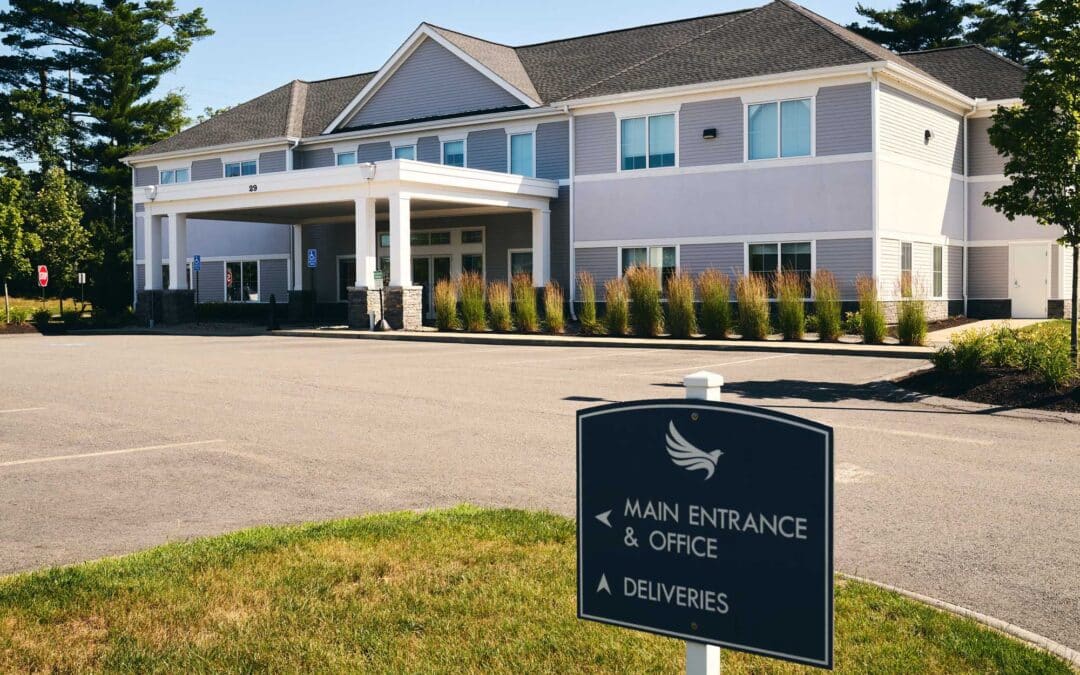Find the Best Rehab for Drugs and Alcohol in New Hampshire
New Hampshire faces significant challenges with drug and alcohol addiction, impacting individuals and communities alike. With over 120 facilities offering diverse treatment options, finding the best NH rehab is crucial for those seeking a path to recovery. The right alcohol rehab NH or drug rehab center can make a significant difference in an individual’s journey towards sobriety.
Choosing the appropriate rehab center is essential for successful recovery as it ensures that the treatment aligns with an individual’s specific needs. This article will guide you through understanding addiction recovery, exploring various rehab programs available in NH such as benzo addiction treatment programs, evaluating the best centers, and addressing challenges faced during recovery including the need for family therapy which can help repair damaged relationships.
By the end of this read, you’ll have a comprehensive understanding of what an addict needs to recover – including specialized programs like benzodiazepine detox – and how to navigate the resources available in New Hampshire.
Understanding Addiction Recovery
Addiction is a complex condition characterized by an inability to stop using substances despite harmful consequences. It affects not only the individual but also has far-reaching impacts on families and communities. Substance abuse can lead to health problems, strained relationships, and economic hardships. Recognizing these challenges is crucial for initiating the journey towards addiction recovery.
Importance of Tailored Treatment Options
Tailored treatment options are crucial in addressing the unique needs of each person struggling with addiction. Personalized care plans enhance the effectiveness of rehabilitation by considering factors such as:
- The type of substance used
- Duration of addiction
- Any co-occurring mental health conditions
This approach ensures that treatment is comprehensive and adaptive to the individual’s circumstances.
Key Components of Effective Addiction Recovery
Effective addiction recovery depends on several key components:
- Assessment: Understanding the extent and nature of the addiction.
- Detoxification: Safely managing withdrawal symptoms.
- Therapy: Providing psychological support through counseling and behavioral therapies.
- Aftercare Planning: Ensuring continued support post-treatment.
Tailoring these components creates a pathway to successful recovery, fostering long-term sobriety and improved quality of life.
The Impact of Personalized Rehabilitation Strategies
The right combination of treatment options can significantly impact an individual’s ability to overcome addiction, underscoring the importance of personalized rehabilitation strategies. For those seeking such customized care, addiction rehab centers like Liberty Health Services in Derry offer individualized treatment plans and proven therapies dedicated to recovery.
Types of Rehab Programs Available in NH
1. Residential Treatment
Residential treatment programs are a key part of the rehab programs in NH. These programs offer a structured environment that is essential for recovery, where individuals struggling with addiction can receive support and care.
In residential treatment facilities, patients live on-site, which allows for a comprehensive approach to rehabilitation. This means that medical care, therapy, and community support are all integrated into the program.
Key Features of Residential Treatment:
- Immersive Nature: Patients live within the facility, which eliminates external distractions and negative influences. This full-time commitment fosters a deeper focus on recovery.
- 24/7 Support: Round-the-clock assistance ensures immediate response to any medical or psychological needs, enhancing safety and comfort.
- Structured Environment: Daily schedules are meticulously planned, balancing therapy sessions with recreational activities to promote holistic wellness.
Benefits of Residential Treatment:
- Safe Haven: For those struggling with severe addiction, residential programs offer a secure environment where they can begin healing without the pressures of everyday life.
- Community and Peer Support: Living in close quarters with others on similar journeys cultivates a sense of camaraderie and mutual encouragement.
- Comprehensive Care: Access to multidisciplinary teams including doctors, therapists, and counselors provides tailored support addressing both physical and mental health needs.
Choosing the right residential treatment center among the top rated NH rehab facilities is crucial for effective rehabilitation. Institutions like Plymouth House and Granite Recovery Centers exemplify successful residential models by offering diverse therapeutic options grounded in evidence-based practices. These centers play a vital role in answering common concerns such as “Do people get better in rehab?” by providing environments conducive to sustainable recovery. Understanding what is the hardest part of rehab—often the initial adjustment period—helps prepare individuals for the journey ahead, setting them up for success within these structured settings.
2. Outpatient Treatment
Outpatient treatment programs stand out among rehab options in New Hampshire for their flexibility and accessibility. Unlike residential treatment programs, outpatient services allow individuals to attend therapy sessions while continuing to live at home. This approach is particularly advantageous for those who have significant personal commitments, such as work or family responsibilities, making it easier to incorporate recovery into daily life.
Key Features of Outpatient Treatment:
- Therapeutic Sessions: Patients engage in individual and group therapy sessions that are designed to address the psychological aspects of addiction. This ensures a comprehensive approach without the need for full-time residency.
- Flexible Scheduling: These programs often offer flexible scheduling, allowing participants to choose sessions that fit their timetable, thereby maintaining a balance between recovery and personal obligations.
- Suitability for Various Levels of Addiction: Outpatient treatment is ideal for individuals with varying levels of addiction severity. Whether you’re beginning your journey or transitioning from a more intensive program, outpatient services provide continuous support.
In New Hampshire, top-rated rehabs like Avenues Recovery Center and Farnum Center include outpatient treatment as part of their offerings. This variety in rehab programs in NH ensures that individuals can find a solution that fits their unique needs, enhancing the chances of long-term recovery success.
3. Medication-Assisted Treatment (MAT)
Medication-Assisted Treatment (MAT) is a key component of rehab programs in NH, especially effective for treating opioid addiction. It combines medications such as methadone, buprenorphine, or naltrexone with counseling and behavioral therapies to significantly reduce cravings and withdrawal symptoms. This approach not only makes detoxification physically easier but also helps individuals concentrate on their recovery efforts.
Top Rated NH Rehab centers include MAT in their all-inclusive treatment plans to improve long-term recovery chances. The combination of medication and therapy helps stabilize brain chemistry, block the pleasurable effects of opioids, and restore normal body functions without the harmful consequences linked to substance use disorder.
In New Hampshire, facilities like Granite Recovery Centers and Avenues Recovery Center at New England provide MAT as part of their wide-ranging services, which also encompass residential treatment and outpatient options. These programs are designed to cater to individual requirements, guaranteeing that each person receives personalized care aimed at achieving lasting sobriety.
By understanding how MAT fits into a broader rehabilitation strategy, individuals can better navigate their path toward recovery, leveraging various resources offered by the Best NH Rehab centers for comprehensive support.
Evaluating the Best Rehab Centers in NH
When aiming to evaluate rehab centers in NH, several key factors come into play, ensuring you identify the best fit for your recovery journey.
1. Accreditation
Ensure the facility is accredited by recognized bodies like the Joint Commission or CARF. This guarantees that the center meets specific standards of care and safety.
2. Staff Qualifications
Look for centers staffed with licensed professionals, including therapists, counselors, and medical personnel. Their expertise and experience are crucial for effective treatment.
3. Available Treatments
Consider the variety of treatment options offered. The best NH rehab centers provide a comprehensive approach, including detox, residential programs, outpatient services, and medication-assisted treatment (MAT).
Understanding these elements helps streamline your decision-making process. Choosing a center that aligns with these criteria increases the likelihood of a successful recovery journey.
Success Rates and Recovery Outcomes in NH Rehabs
Understanding success rates in NH rehabs provides valuable insight into the effectiveness of treatment programs. Nationally, the success rate of rehab varies, with estimates ranging from 40% to 60% for individuals who complete their treatment programs. This statistic highlights that recovery is a challenging journey, but also underscores the possibility of long-term sobriety with the right support.
Rehabs in New Hampshire strive to meet these benchmarks by offering personalized and evidence-based treatments. Factors such as individualized care plans, experienced staff, and comprehensive aftercare play crucial roles in enhancing recovery outcomes.
Success rates are not just numbers; they represent real transformations in people’s lives. For those seeking help, understanding these statistics can provide hope and motivation. The road to recovery is unique for each individual, but choosing a rehab with proven success can be a significant step towards achieving lasting change.
Challenges Faced During Recovery Journey
Addiction recovery presents numerous challenges that individuals must navigate on their path to sobriety. Here are some common hurdles faced during this journey:
- Cravings: These intense urges to use substances can feel overwhelming and are a common struggle in the early days of sobriety. Cravings are often triggered by stress, environmental cues, or emotional states.
- Emotional turmoil: As individuals begin to process their emotions without the numbing effects of substances, feelings of anxiety, depression, or anger may surface. These emotions can be daunting and require effective coping strategies.
- Understanding what is the hardest day of sobriety varies for each person: Some may find the initial days post-detox the most difficult, as they adjust to life without substances. Others might struggle during significant life events or anniversaries related to substance use.
These challenges highlight the importance of comprehensive support systems and therapeutic interventions to aid individuals in overcoming obstacles on their recovery journey.
Community Resources and Support Services for Long-Term Recovery Success
In New Hampshire, a strong network of community resources plays a crucial role in supporting long-term recovery success. These services go beyond traditional treatment options, providing essential support to individuals as they transition back into daily life.
1. Job Training Programs
Many organizations in NH offer job training services to help individuals rebuild their careers post-recovery. These programs are designed to equip participants with the skills necessary for employment, fostering independence and self-sufficiency.
2. Sober Living Houses
Transitional housing, often referred to as sober living houses, provides a structured environment for those in recovery. These facilities offer a supportive community where residents can focus on maintaining sobriety while reintegrating into society.
3. Peer Support Networks
Organizations like Hope for New Hampshire Recovery facilitate peer support groups, connecting individuals with shared experiences who can provide mutual encouragement and accountability.
4. Specialized Detox Programs
For those struggling with specific substances such as synthetic drugs or cocaine, specialized detox programs are available. These programs offer targeted support to help manage withdrawal symptoms effectively, ensuring a smoother transition into recovery. If you’re seeking help for cocaine addiction, Liberty Health Services offers comprehensive drug addiction treatment in New Hampshire.
These community resources in NH for addiction recovery are integral to sustaining the progress made at the best NH rehab centers, ensuring individuals have the support needed for enduring recovery.
Conclusion
Taking the first step towards recovery is a powerful decision. By choosing to find the best rehab in NH, you’re starting a journey towards a healthier and more fulfilling life. Liberty Health Services is here to help you on this journey with personalized treatment plans designed to help you regain your health and rebuild your life.
Whether you’re facing addiction challenges or supporting someone you care about, reaching out to Liberty Health Services can be the crucial turning point for long-term recovery success.
They provide individualized support and professional care, making them one of the top choices for addiction treatment rehab in Laconia. Embrace this chance for transformation and find out how these rehab options can bring about lasting change.
If you’re thinking about this journey, don’t hesitate to contact Liberty Health Services for more details about their services or to check your insurance benefits using their easy insurance verification form.


